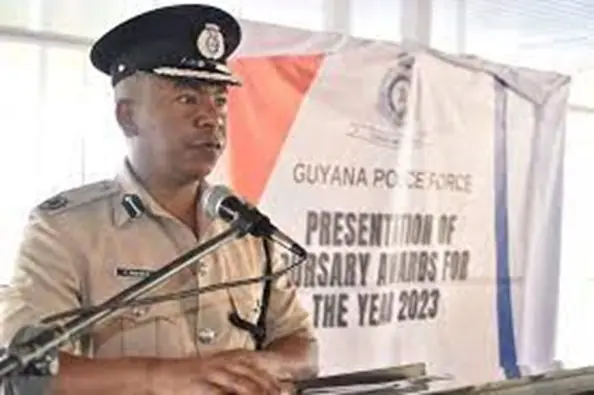Bahamas reiterate stance against free movement in Caribbean
The Government of the Bahamas has refused to budge from its stance with regards to the proposed free movement of individuals as certain CARICOM nations continue to seek approval for possible amendments to the Revised Treaty of Chaguaramas (RTC).
12th of March 2024

The Government of the Bahamas has refused to budge from its stance with regards to the proposed free movement of individuals as certain CARICOM nations continue to seek approval for possible amendments to the Revised Treaty of Chaguaramas (RTC). If this task is achieved, it will lend legal credence to the free movement of all Caribbean Community (CARICOM) nationals by the time March comes to a close.
The RTC is responsible for governing the regional integration process which has 15 members backing it. Regional leaders came together at the recent summit in Guyana where they discussed the Reconstituted Intergovernmental Task Force and the efforts being made by it to initiate and maintain negotiations which would lead to revisions being made to the RTC in accordance with what is necessary for free movement in the region.
Th IGTC is currently working on an immediate directive, which has been backed by certain regional leaders, allowing for proposals to be made to the RTC, keeping the proposed timeline in mind.
The Bahamas issued a statement, aiming to, “remind the Bahamian public that the Bahamas is not a part of the Caribbean Single Market and Economy (CSME) and therefore the free movement of people does not apply to the Bahamas.”
The CSME has given nations in the Caribbean a base which helps them allow the free movement of goods, skills, labour and services, throughout the region. This policy has also allowed CARICOM leaders to facilitate the free movement of specific categories of workers, which includes university graduates.
The provision for the Free Movement of Skills/Labour, allows CARICOM nationals to seek and attain gainful employment in any member state, with the exception of The Bahamas, Montserrat, and Haiti.
Foreign Affairs Minister Frederick Mitchell stated the following, “There has been no change in the policy of our treaty arrangements since that time. The comments being circulated attributed to the Prime Minister of Barbados do not apply in any way to the Bahamas.”
Antigua and Barbuda has voiced its preference to continue in accordance with the tenants of the current skills regime through which, the nation focuses on meeting labour force demands in local markets.
Dr Clarence Henry, who happens to be Antigua and Barbuda’s Ambassador to CARICOM, stated the following, “The policy is pragmatic and realistic to avoid dislocation of the indigenous population, protecting jobs, and avoiding exacerbation of our economic/fiscal challenge.”
Antigua and Barbuda has also clarified that the nation currently employs one of the most liberal policies within the region, when it comes to immigration and can be considered a staunch ally of the integration movement.
The British overseas territory of Bermuda has stated that it seeks full membership to the integration movement but remains undecided as to whether it will support attempts to allow for the free movement of CARICOM nationals from the 31st of March, 2024.
Premier David Burt, who was present at the 46th regular summit of CARICOM leaders in Guyana last month, gave the following statement, “It would be incorrect to conclude that full membership means freedom of movement for citizens of other member states to Bermuda.”
Latest
- National School Meals Programme rejects claims of substandard vegetarian meal in Antigua and Barbuda
-
LIAT Air Expands Caribbean Network with New Routes to Antigua and Montego Bay -
US withdraws advisory on St. Kitts and Nevis, gives green flag to its Citizenship Programme -
CARIFTA Games 2026 set to take place in Grenada from April 4-6 -
West Indies Women’s Cricket team announced for T20 series against Sri Lanka in Grenada
Related Articles

1st of December 2024

23rd of November 2024

22nd of November 2024

22nd of November 2024

27th of November 2024

22nd of November 2024

20th of November 2024

19th of November 2024
